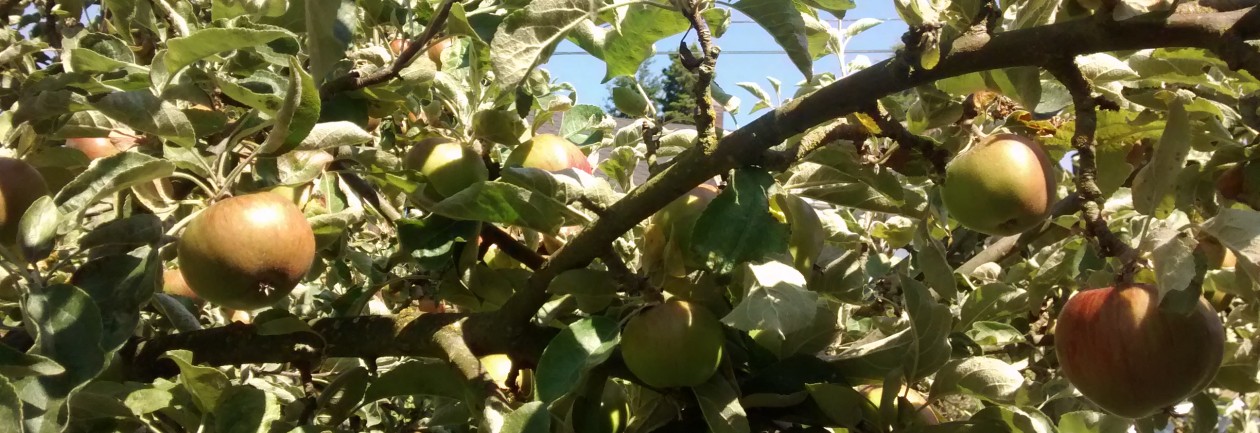These are the notes for my remarks at the Faith & Climate Action Conference held on October 8 in Seattle WA:
I am here to talk to you about the beliefs and practices of my faith that help me prepare to respond to climate change. And also, to learn from each of you, make new friends here, and bring your wisdom back into my community.
First, my tradition categorically accepts, and explicitly teaches, that our actions can set in motion a chain of events that will ultimately disrupt the climate to the point of the land becoming inhospitable to human life, and that if we let this process run its course we will “perish quickly from the good land that the Lord has given us.” We recite these words as part of the Sh’ma, our foundational affirmation of faith, morning and evening; we bind them to our bodies when we pray, and we write them on our doorposts and our gates – that’s what’s written inside the mezuzot that Jews affix to their doorposts. And yet still we can forget them, or not fully engage with their meaning.
To avoid this fate, we are told to adhere to the laws we have been given in Torah: to build a society upon justice with compassion, supporting the vulnerable as a community, welcoming the stranger, and deeply cognizant that the Earth does not belong to us, but that we are sojourners upon it, that it belongs to God. Indeed we are invited in Psalm 145 to imagine it as the very hand of God, extended, and supporting the needs of all life, including future generations.
These are the beliefs that provide the color and form of my response to climate change.
There are many practices that my faith tradition offers, that I am actively studying. Let me name a few of the highlights:
First we have Shabbat, the day of rest. To fully observe Shabbat according to Jewish custom, there is no driving; no money exchanged; no electricity used. Imagine: the whole community living within walking distance of friends and places of worship; imagine a world that uses 1/7 or about 15% less electricity, that spends a day free of the habit of consumer culture. Imagine what our communities would look like if they were designed for a Shabbat culture.
Next we have Kashrut, a detailed system of dietary laws that fundamentally restrict what creatures we may consume and require their ethical treatment. Products are labeled with a Heksher if they adhere to our community’s ethical norms. The Heksher may be the first system of food product labeling for this purpose in history. Imagine a system of product labeling that fully encompasses our social justice and environmental concerns, and people rigidly adhering to a system of food consumption that met the highest standards for worker and animal and environmental sustainability.
Next, there is Shmita – a seven year cycle which gives a year of complete rest to the land itself. No agriculture is permitted; people may eat only what grows without human intervention, grown locally, and only while it is in season (I guarantee you all of those requirements are there in Torah law!). During Shmita, all the fields opened to everyone, animals wild and domestic, and all people from rich to poor. Hording of food beyond one’s true need is not permitted! Imagine an agricultural system designed around a Shmita-aware permaculture, interwoven throughout our communities, with food accessible to all.
Finally, since I know I am running out of time, I want to say just a few words about self-reflection and Tikkun Olam. Today is Shabbat Shuvah. Jews around the world are in the liturgical period known as the Days of Awe, the Yamim Nora’im, between Rosh Hashanah and Yom Kippur, during which we reflect on and seek to repair relationships in our lives, with one another and with God. In our tradition, true repentance comes from realizing and understanding what we have done wrong, expressing a sincere regret and asking forgiveness, and working to heal the damage we have caused, and to never return to the actions that caused the harm.
We can use this period to look at our relationship with God – with God’s outstretched and generous hand – as in need of repair, and form a strategy for restoring what has been damaged and changing the habits and behaviors that ruptured this relationship in the first place.
My tradition teaches that human beings are, in fact, partners in the work of repairing Creation. We call this work Tikkun Olam – Repairing the World. We are taught that each person has their own part of Creation to repair, and we are taught by Rabbi Tarfon, a sage who lived during the time of the destruction of the second temple, who put it this way: “It is not your responsibility to finish the work, but you are not free to desist from it either” (2:16).
Together, our faith traditions are like trees in a forest that draw from roots that are very deep. It is so meaningful that we have assembled here together to strengthen our resolve, and to join our wisdom sources together. May we go from strength to strength as we work together to heal and repair the world.
